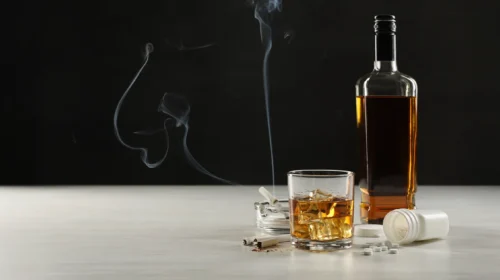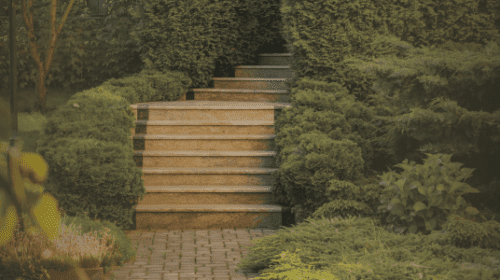Codependency is often described as an addiction to another person, not a substance. But when someone struggles with addiction, they struggle to build and maintain healthy relationships – which can lead to codependency.
It’s not always easy to determine which came first, but understanding the causes of both addiction and codependency can reveal how they influence each other.
Understanding Codependency
Codependency is a behavioral condition in a relationship where one person enables another person’s addiction, poor mental health, immaturity, irresponsibility, or underachievement.[1] Often, this causes significant stress and disruption to the codependent partner’s life, activities, and interpersonal relationships.
In a codependent relationship, one partner may enable the other’s harmful behaviors, such as addiction, but codependency can exist in various contexts and isn’t limited to relationships involving substance abuse.
Signs of Codependency
The signs of codependency include:
- A deep-seated need for approval from others
- Self-worth that’s defined by others’ impressions
- A habit of taking on more than you can handle, either to earn rewards or relieve someone’s burden
- A tendency to apologize or take the blame to keep the peace
- A pattern of avoiding conflict
- A tendency to put others’ needs first
- Excessive concern about a partner’s habits or behaviors
- Making decisions for others or “managing” them
- A mood that reflects others’ emotions, rather than your own
- Guilt or anxiety when doing something for yourself
- Idealizing relationships to the point of staying when they’re not fulfilling
- Doing things you don’t want to do to make others happy
- Fear of rejection or abandonment[2]
This differs from the healthy support of another during challenging times. A codependent person reaches a level in which they define themselves in relation to their care for others.
Types of Codependency and Addiction
Codependency doesn’t only occur with drug or alcohol abuse and addiction, but it often occurs in people who are struggling with or seeking help for substance use disorders and their loved ones.
Addiction and codependency can manifest in:
- Partners who are both abusing substances.
- The partner or adult family members of people using substances.
- The children of people using substances.
Often, the children of people with addiction end up in a caretaker role in response to a codependent parent.
Common Origins of Codependency
Codependent relationships can start in multiple ways. Some start when one person internalizes feelings that they’re not good enough and the other, subconsciously or consciously, leverages those feelings to get what they want. This dynamic is more common in romantic relationships than familial ones, but it can also occur in families or within platonic friendships.
Other common causes of codependency include, but are not limited to:
- Childhood trauma
- Anxiety or depression
- Fear of abandonment[3]
While the patterns and behaviors associated with codependency can often originate in childhood experiences, they can also develop in adulthood due to various factors such as relationship dynamics or personal circumstances. The healing process can be complex and often includes behavioral therapies like cognitive behavioral therapy (CBT).
Possible Risks of Codependency
When a codependent relationship exists with an addiction, both people in the relationship experience negative effects and risks, including damage to their health and the family dynamic. They may lose relationships outside of the codependent relationship, develop an addiction to substances, or process addictions like gambling.
Eventually, the relationship becomes all-consuming, and the needs of the partner overtake other responsibilities outside the relationship. The codependent person will often neglect their own care and well-being, resulting in declining health, low self-esteem, depression, and other mental health conditions.[4]
While a codependent relationship can potentially impact the treatment outcomes for substance abuse, it is not a deterministic factor, and individual circumstances vary. The codependent enables substance abuse and addiction, and the codependent partner may fear that seeking help will cause their partner to leave once they’re in recovery.
Unfortunately, this can also happen if the partner gets addiction treatment. The codependent partner feels dependent on the addiction to keep the relationship going, falling back into old patterns and increasing the risk of relapse once the treatment is complete. It’s essential for the codependent to be included in the rehab care plan to reduce this risk.
Treating the Addiction and the Codependency
Treatment for addiction and codependency may involve a loved one, but it varies by the dynamics of your particular relationship, the impact of the codependent behaviors, and your safety.
In some cases, codependency begins because one person in the relationship is manipulative and treats affection and stability as currency. They may tell you that you don’t “need” therapy and that you can overcome addiction and other issues together.
Some loved ones should be involved in care, however. They can grow with you and learn how to provide healthy support in your treatment and ongoing recovery. This involves treatment for not just the addiction but also therapy to establish healthy relationship dynamics.
Establishing Boundaries
One of the most important aspects of treating codependency with drug or alcohol addiction is setting healthy boundaries.[5] The person struggling with substance abuse and the codependent partner can benefit from boundaries and develop a healthier and more stable relationship.
There are several steps involved in developing healthy boundaries:
- Learning that having different needs and preferences is acceptable
- Setting limits on one’s own behavior and the behavior of others
- Defining emotions as they are, rather than what they “should” be
- Recognizing and pursuing one’s own needs instead of others
- Respecting one’s own boundaries and the boundaries of others[6]
Establishing boundaries is a key part of moving forward in a healthier manner and promoting a better outcome for addiction treatment.
Seeking Treatment for Addiction and Codependency
Addiction can be challenging to address on its own, but codependency adds complexity to the treatment process. It’s important to seek rehab centers with individualized treatment plans to address the challenges of addiction and the additional obstacles of codependency.
At Recovery Unplugged, we offer comprehensive addiction treatment programs with evidence-based modalities like behavioral therapy, individual counseling, group therapy, and family therapy to address the root causes of addiction, as well as music to facilitate healing.
If you or a loved one are struggling with addiction and codependency, we’re here for you. Contact our compassionate care team today to learn more about our addiction treatment program.

























